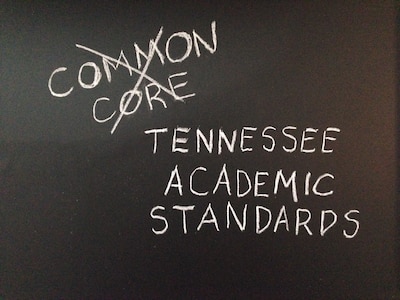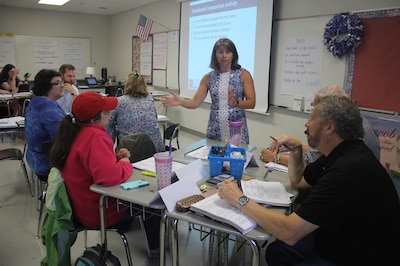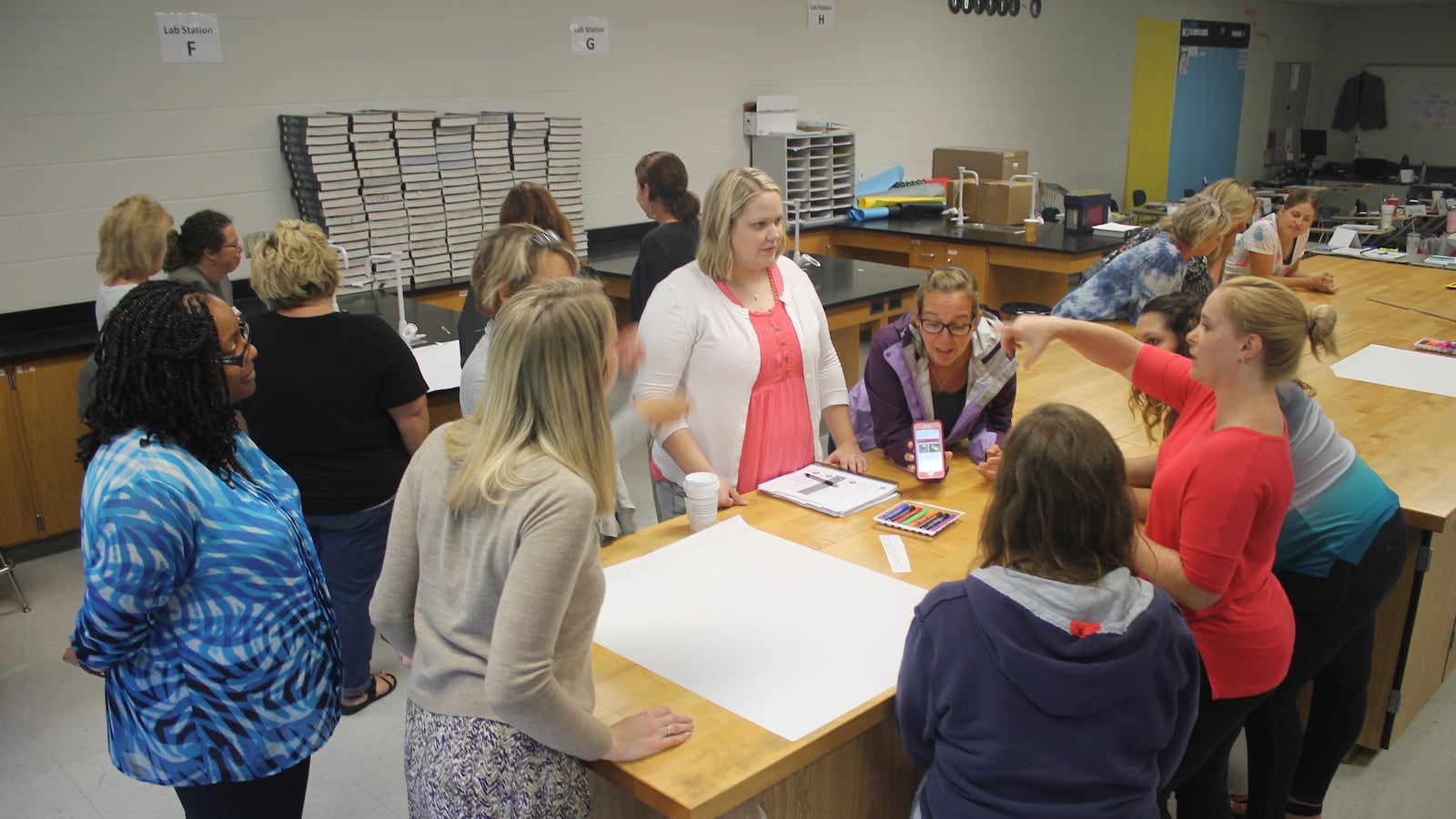Teachers poring over Tennessee’s revised academic standards are mostly breathing a sigh of relief as the state prepares for its third change in eight years of what students are expected to learn in each grade.
The Tennessee Academic Standards for math and English language arts, which will reach K-12 classrooms this fall, aren’t dramatically different from Common Core standards used in Tennessee since 2012. But numerous tweaks are sprinkled across the standards — mostly word adjustments for clarity and changes in presentation to make the standards more user-friendly. Some standards also have been moved to different grades and courses for the sake of progression and manageability.
About 6,000 teachers got a two-day crash course on the changes during trainings last week at 11 sites across the state. The Tennessee Department of Education organized the sessions, attended by educators from more than 90 percent of Tennessee’s 146 districts.
“This is the third time I’ve gone through this, and it’s the best one from my perspective,” said John Lasater, a Sumner County math teacher who attended sessions at La Vergne High School near Nashville.
Lasater, who teaches at Westmoreland High School, was thrilled that some standards have been moved out of standards-heavy algebra classes into higher-level math courses. “It was just too much, especially Algebra II,” he said. “Our teachers just never seemed to be able to cover everything.”
Diving into her manual for English language arts, Rutherford County teacher Leila Hinkle liked seeing a greater emphasis on early writing skills, as well as the embedding of language standards in foundational literacy standards.
“I think the new standards are clearer; they’re clarifying,” said Hinkle, who will teach fourth grade this fall. “You can see better where students were supposed to be and where they’re going.”
Standards are foundational because they set learning goals that dictate other education decisions around curriculum and testing. In Tennessee, they are usually reviewed every six years.

The trainings are part of the last major step in a transition that began in 2014 when Gov. Bill Haslam ordered a review after Common Core became embroiled in political controversy over charges of federal overreach, in part because of incentives the Obama administration offered to states that adopted them. Eighteen months of review and revisions followed, with the State Board of Education approving the newly minted Tennessee Academic Standards last year.
The changes aren’t as drastic as in 2011 when Tennessee switched to Common Core. That’s because the committee of educators charged with the overhaul used the Common Core as a foundation rather than starting from scratch. Both sets of standards emphasize critical thinking and analysis and de-emphasize memorization of facts.
Education Commissioner Candice McQueen said many of the changes, while seemingly subtle, are no less substantive.
“A word change can be significant in terms of standards. If you change the word know to explain as far as what students must be able to do, that’s significant. That’s two different levels of understanding,” she said.
The trainings and training resources are costing the state about $3 million over the course of a year, far less than the $23.5 million in federal Race to the Top funds spent on Common Core trainings across three years.
To keep costs down, the state is changing its approach away from dependence on department-led trainings.

“We’re encouraging districts to identify teams to train with us and then to re-deliver the trainings in their own districts,” said Robbie Mitchell, the department’s executive director of academic strategy and operations. “It’s more about empowering and equipping districts to make their own decisions about what’s best for their district.”
The state plans to use the same training model for the rollout of new science standards in 2018 and social studies standards the following year.
Lasater said he found this year’s trainings productive and worthwhile.
“Before, the trainings were ‘here’s a standard, now let’s work a problem.’ This time, we were challenged to take a standard and develop a question that would fully assess a student’s mastery of it. We weren’t just working a problem; we were creating a problem. That’s a huge shift.”
You can find Tennessee’s new standards for math and English language arts on the Education Department’s website.

